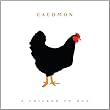 There's two pages devoted to Parchment et al. The pages feel like a bit of an afterthought, probably culled from blogs like this one. Rob, I think correctly, suggests that acoustic folk music was an "ideal idiom" for rewriting the hymn book in a modern, gentle image. He names some 14 bands as having made music of "lasting value", including Parchment, Trinity Folk, Caedmon, Water into Wine Band, Presence and 11:59 and a mention of Grapevine Records. And there's some intriguing speculation about Reflection Records A quick check suggests that quite a bit more information has surfaced about Reflection in the last year - including a tribute blog.
There's two pages devoted to Parchment et al. The pages feel like a bit of an afterthought, probably culled from blogs like this one. Rob, I think correctly, suggests that acoustic folk music was an "ideal idiom" for rewriting the hymn book in a modern, gentle image. He names some 14 bands as having made music of "lasting value", including Parchment, Trinity Folk, Caedmon, Water into Wine Band, Presence and 11:59 and a mention of Grapevine Records. And there's some intriguing speculation about Reflection Records A quick check suggests that quite a bit more information has surfaced about Reflection in the last year - including a tribute blog.Rob Young sets all this in the context of some 60s musicians embarking on spiritual journeys of their own. However, unlike in the USA, in Britain there was very little cross-over to the Christian bands mentioned above. They were mainly fresh-faced youngsters, making their own way in the music scene. The big exception was John Pantry, who brought his talent and production skills to bands such as Parchment.
* Additional note: if you read the Amazon reviews you will see many writers highly critical of Rob Young's efforts to trace a succession to 'Electric Eden' through the 80s and 90s via Kate Bush and new romantics Talk Talk. I'm stuck on those rather tedious closing chapters too. It raises again the question of what on earth happened in the 1980s. Young tries to link the music to a particular view of England. In fact he succeeds in highlighting just how few musicians were playing progressive folk in the 60s and 70s because they thought it was an interesting genre and how many were involved just because it was there. The same comment applies to the Christian scene. Some were in Christian bands because it was a way of making music, others because it was a way of worshipping God or evangelising. In fact those who failed to adopt the latest musical styles were mocked mercilessly, especially at the Greenbelt festival (see the 1979 Greenbelt video) In spite of some deep thinking at the time by the likes of Os Guinness, very few saw the creation and celebration of excellent music as potentially an act of worship in itself, rather than having some other purpose. In my personal view, this is reflected in the continued dumbing down of church worship music (often there is a fear that worshippers might admire the musicians - just as in the days when many churches banned musical instruments). The history of Parchment and the tensions, both artistic and within the Christian community, really highlight this. Is this a talking point for some of those who were around at the time? Comments welcome!








